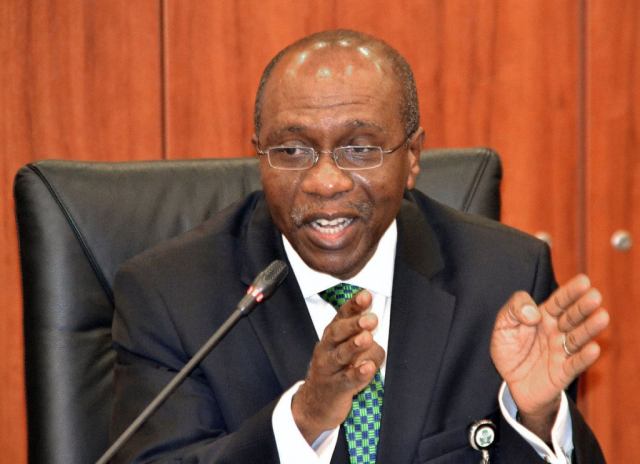
In line with the vision of President Muhammadu
Buhari, the CBN has indeed created several lending programmes and provided hundreds of
billions to smallholder farmers and industrial
processors in several key agricultural produce.
These policies are aimed at positioning Nigeria to
become a self–sufficient food producer, creating millions of jobs, supplying key markets across the
country and dampening the effects of exchange
rate movements on local prices.
This philosophy has been a consistent theme of
the CBN‘s policies over the last couple of years.
At the 2016 Annual Bankers‘ Dinner, I challenged
the bankers that we needed to take decisive actions to fundamentally transform the structure
of our economy. Throughout that speech, I talked
about the damaging effects of Nigeria‘s
unsustainable propensity to import, and opined
that it was high time we looked inwards and
stopped using hard-earned foreign exchange (FX)
to import items that w e could produce locally.
This determination, therefore, formed the bedrock
of the Bank‘s policy, which restricts access to FX
for importers of many items. These sentiments
were re–echoed at the 2017 edition of the same
Bankers‘ Dinner, with specific examples of several
companies that have benefited significantly from
this policy of self–sufficiency. With President
Buhari‘s full support, we have continued to refine
this policy to ensure that the best interest of
Nigeria is served.
Many times, the Bank has been accused of
promoting protectionist policies. My answer has
always been that leaders are first and foremost
accountable to their own citizens. And if the
vagaries of international trade threaten their
wellbeing, leaders have to react by compelling
some change in patterns of trade to the greater
good of their citizens.
That is why in response to COVID–19, we are
strengthening the Nigerian economy by providing
a combined stimulus package of about N3.5
trillion in targeted measures to households,
businesses, manufacturers and healthcare
providers. These measures are deliberately
designed to both support the Federal
Government‘s immediate fight against COVID–19,
but also to build a more resilient, more self–reliant
Nigerian economy.
We do not know what the world will look like after
this pandemic. Countries may continue to look
inwards and globalization as we know it today
may be dead for a generation.
Therefore, as a nation, we cannot afford to
continue relying on the world for our food,
education and healthcare. The time has come to
fully transform Nigeria into a modern,
sophisticated and inclusive economy that is self–
sufficient, rewards the hardworking, but protects
the poor and vulnerable, and can compete
internationally across a range of strategic
sectors.
In order to achieve this goal, we must begin
immediately to support the Federal Government
to:
1) Build a base of high-quality infrastructure,
including reliable power, that can engender
industrial activity; 2) Support both smallholder
and large scale agriculture production in select
staple and cash crops;
3) Create an ecosystem of factories, storages, and
logistics companies that move raw materials to
factories and finished goods to markets;
4) Use our fiscal priorities to create a robust
educational system that enables critical thinking
and creativity, which would better prepare our
children for the world of tomorrow;
5)Develop a healthcare system that is trusted to
keep all Nigerians healthy, irrespective of social
class;
6) Facilitate access to cheap and long–
term credit for SMEs and large corporates;
7) Develop and strengthen pro–poor policies that
bring financial services and security to the poor
and the vulnerable; and
8) Expedite the development of venture capitalists
for nurturing new ideas and engendering Nigerian
businesses to compete globally.
India is in a position to ban exports because it is
producing critical drugs and medical supplies that
the rest of the world needs. It also has
companies that are global champions, and even making mergers and acquisitions in advanced
nations. Why should this be out of our reach?
We have the companies too; we have the
manpower and some of the best brains in the
world from the Americas to Europe and from Asia to Africa are Nigerians; driving global innovations
in all fields. Nigerians are successful everywhere,
and are already one of the most sought after
immigrant groups in the United States.
But now is the time to seize this opportunity and
create an environment that empowers our people
to thrive within our own shores.
To this end, the Central Bank has developed a
Policy Response Timeline to guide our crises
management and the orderly reboot of the
Nigerian economy.
